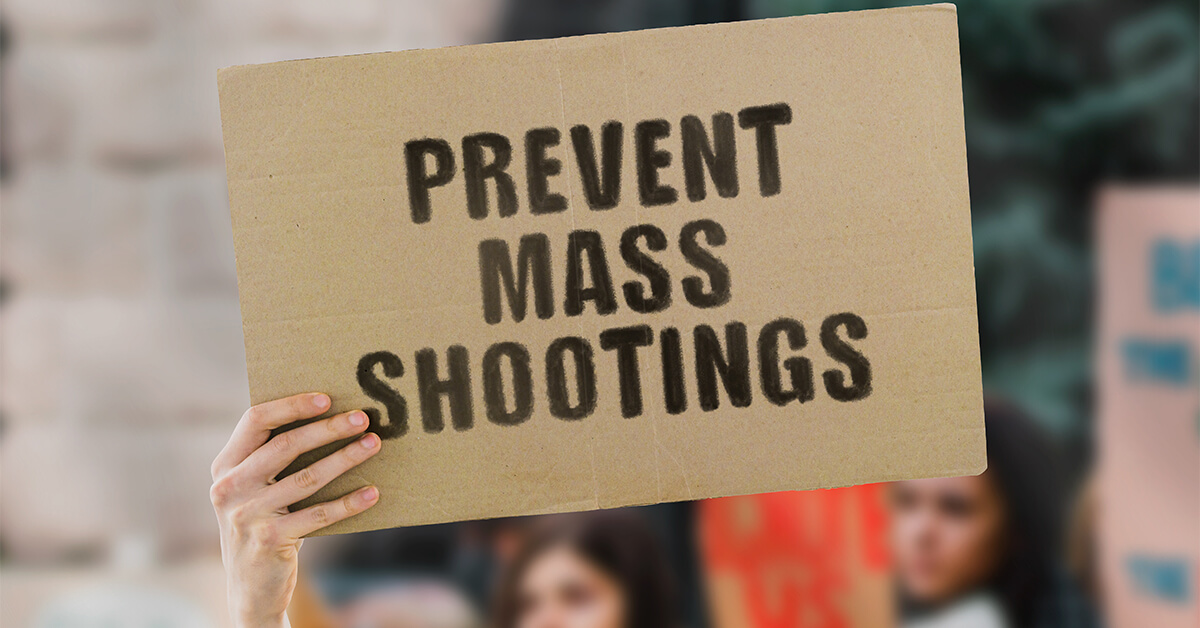May 10, 2023

The Shiny New Mass Shooting Objects That Are Distracting and Desensitizing Us to a Public Health Crisis
Gun violence is a public health crisis in the U.S. You don’t need any more evidence than the May 3 mass shooting at an Atlanta hospital that claimed the life of 39-year-old Amy St. Pierre, who worked in the CDC’s Division of Reproductive Health.
It’s right there, right in front of us.
Yet, at the same time, we’re not doing much if anything substantive to stop it.
Why? One explanation occurred to me when I was watching the evening press conference following the latest mass shooting (at least at the time of writing this post), which happened at an outlet mall in Allen, Texas.
Watch any media coverage of the latest mass shooting, and some experts will say that we have become desensitized to the all-too-frequent tragedies. As if it was our fault that we shook our heads at the news and quickly went back to whatever we were doing. We’ve accepted mass shootings as just another activity of daily living.
I’d argue that the pro-gun lobby, local law enforcement agencies and lazy media outlets individually and collectively are the ones desensitizing us.
The three shiny new objects they’re using to distract us from the latest mass murder are first-responder response time, potential lives saved and gun-purchase history.
Watch the first series of press conferences held in a town where someone with an assault rifle mowed down and murdered innocent people just going about their lives. The first person at the podium will tell us when the first 911 call came in and how quickly first responders arrived and “neutralized” the threat. The second person at the podium will publicly thank the first responders and tear up at how many lives were saved because of their quick action. The number is usually “countless” or “how many.” The third person at the podium will say how the murderer got his or her assault rifle — legally or illegally.
The media in attendance almost always take the bait and spit back whatever the podium speakers say.
Now, don’t get me wrong, these all are important mass shooting KPIs. They’re just not the most important ones.
If you’re not careful, your attention goes to the first responders, the theoretical number of people saved and who sold the weapon. Your attention isn’t on what just happened or the victims. That’s the point of these formulaic and premeditated press conferences. They’re deliberately distracting you away from the murders and the victims, who would be hard to forget, and to the things like response time and gun paper trail that are easy to forget.
Why? Because the people at the podium and their supporters failed their sworn duty to protect us.
The victims whose faces were just blown off by an assault rifle and the victims’ families don’t care how long it took first responders to get there. They don’t care who walked back to their cars or their homes scared but unscathed. They don’t care how the murderer obtained the gun.
If we keep our focus on the victims who will never shop, go to school, go to work or pray again and not let the pro-gun lobby, local law enforcement agencies and lazy media outlets deliberately distract and desensitize us with these shiny objects, we may muster the commitment to ban assault rifles and reduce the number of mass shooting in the U.S.
Some KPIs are more important than others.
Thanks for reading.





